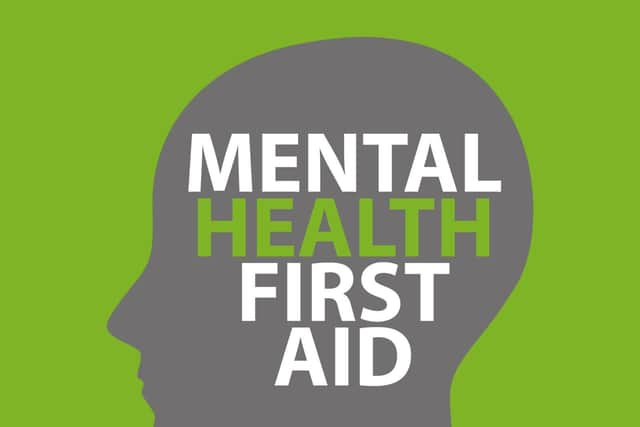Mental Health first aid expert gives seven tips for dealing with depression
and live on Freeview channel 276
Understanding Depression with Expert Guidance
Depression is a common mental health concern that can affect anyone, at any time. It's more than just feeling unhappy or sad for a brief period. It is a persistent feeling that can impact daily life, making tasks and interactions difficult.
Mark, with his notable expertise in mental health first aid, shares that empathy, understanding, and early support can create a significant positive difference in managing mental health. To aid in this, he provides seven simple, yet effective, tips to assist anyone who may be experiencing depression.


Here are the 7 tips from Skills Training Group:
1. Reach Out:
Advertisement
Hide AdAdvertisement
Hide AdEngage in conversations with people you trust—whether they are friends, family, or colleagues. Simply sharing your thoughts and feelings can provide a momentary relief and an ongoing support network. Mark stresses that a listening ear from a loved one can often shine a light, even into our darkest moments.
2. Seek Professional Help:
Speaking with a doctor or a mental health professional can offer you strategies to manage your depression effectively. Mark notes that obtaining professional advice is crucial in navigating through the complex journey of mental health and exploring potential therapeutic or medicinal aids.
3. Routine is Key:
A regular daily routine provides structure and a semblance of order amidst the chaos. Mark highlights that sticking to simple daily tasks, such as getting out of bed at a consistent time or having meals regularly, can establish a stabilising pattern which may counterbalance the unpredictability of depressive episodes.
4. Physical Activity:
Even the gentlest forms of exercise, like a leisurely stroll in the park, can have a positive impact on mental health. Mark emphasises that physical activity generates endorphins, which are natural mood lifters, and encourages maintaining a regular, achievable exercise routine to assist in managing mental wellbeing.
5. Adequate Sleep:
Advertisement
Hide AdAdvertisement
Hide AdEnsuring a healthy sleep pattern is integral for mental and physical recovery. Mark points out that sleep allows our minds to heal and process the day’s events, which can subsequently create a better foundation to tackle the coming days with more energy and a clearer mindset.
6. Healthy Eating:
Opting for balanced, nutritious meals contributes to overall wellbeing. Mark asserts that a well-nourished body supports a healthy mind, hence, incorporating a variety of fruits, vegetables, proteins, and carbohydrates into your diet can positively influence your mental state.
7. Be Kind to Yourself:
Depression is a challenging and legitimate health concern. Mark reminds everyone to recognise their efforts, however small they might seem, and acknowledge that reaching out for help is a powerful and courageous step. Self-compassion, alongside these strategies, forms a pivotal element in the journey towards better mental health.
Final Thoughts:
Mark McShane reiterates that while these tips are constructive, it’s crucial to remember that dealing with depression often involves a personalised approach under professional guidance. These tips should be used as supplementary aids and not a substitute for professional advice or treatment.
Advertisement
Hide AdAdvertisement
Hide AdSkills Training Group remains committed to championing mental health through its varied programs and services, advocating for a well-rounded and empathetic approach towards handling mental health issues within the community.